THE SHANTUNG REVIVAL (1927-1937)
 The Shantung Revival took place in the Chinese province now known as Shandong, between the years 1927 and 1937. Although the revival was prominent in the Shantung Province it was not limited to that province. A leading historian on revivals, J. Edwin Orr, stated that this revival affected every province in China.
The Shantung Revival took place in the Chinese province now known as Shandong, between the years 1927 and 1937. Although the revival was prominent in the Shantung Province it was not limited to that province. A leading historian on revivals, J. Edwin Orr, stated that this revival affected every province in China.
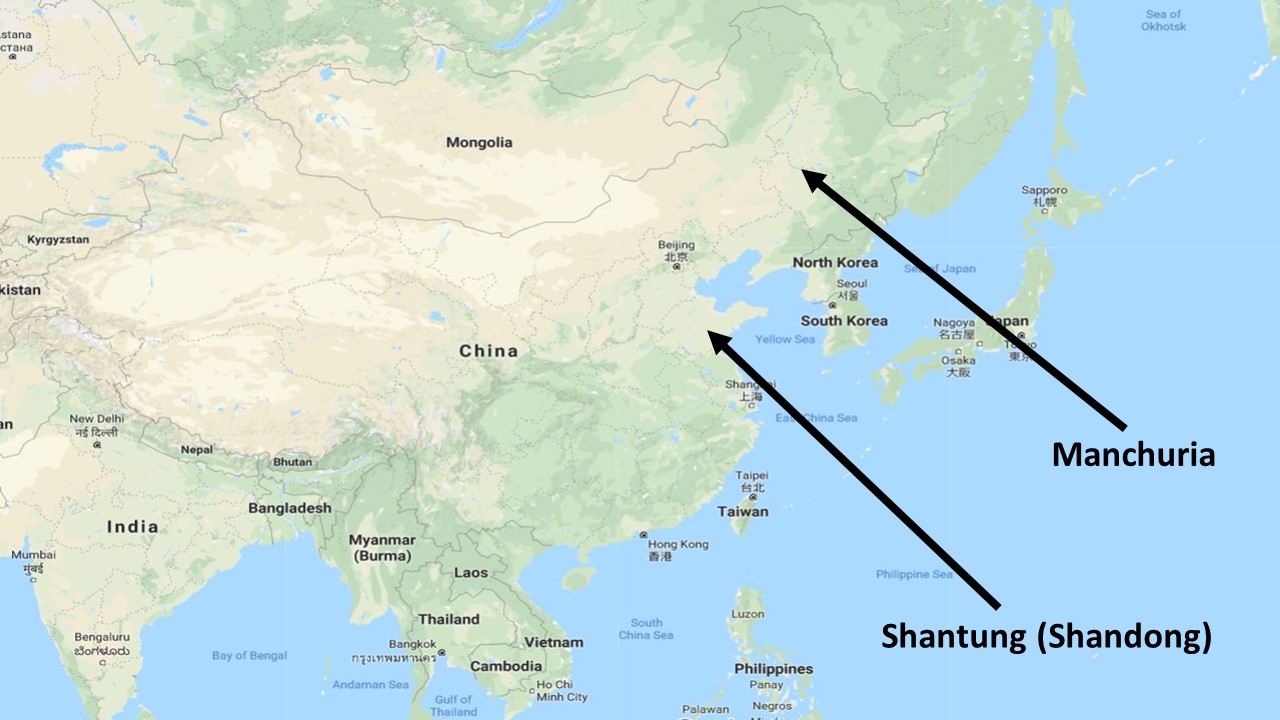 Areas where revival was sparked
Areas where revival was sparked
Missionaries from the Southern Baptist denomination were the primary authors of reports on the revival, but it was not limited to that denomination. It affected dozens of mission agencies and denominations that were working in China at that time.
Southern Baptists claimed that this was “The Greatest Revival in Baptist Church History.” Strangely enough, the revival had very distinct Pentecostal features which the Southern Baptists at that time were very opposed to. The Baptist missionaries were promoting a “baptism in the Holy Spirit,” or an “infilling of the Holy Spirit,” subsequent to salvation, with manifestations that accompanied that infilling. This was taking place among other non-Pentecostal mission agencies as well.
State of the Church in China Before the Revival
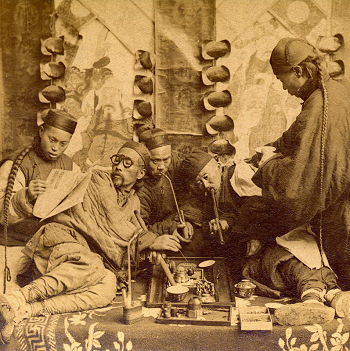
Opium use by some church members
was a symptom of spiritual apathy.
►The whole country was in turmoil.
►Missionaries and church leaders in China began to sense a great spiritual need.
►The churches were cold and apathetic.
►Many were simply dead.
►There was little difference from before and after a person was “converted.”
►Spiritual conditions were so bad that many missionaries resigned.
►There was utter depression that made many shy away from attempting anything for God.
►Membership in churches decreased consistently from 1919 onward.
►Many churches sat empty during the spring and fall farming seasons.
►Opium smoking, wine drinking, and the taking of concubines were common sins among the church members.
►During the Nationalist Revolution in 1927, much of the mission work suffered and many Chinese Christians fell away due to the severe persecution.
►Defeatism was prevalent.
►Many Christians believed the Bible but had no conception of the moral demands associated with it.
►Secularism was threatening as more than one-half of the missionary work force was engaged in educational work (not evangelism).
►Liberalism weakened doctrinal convictions.
►There was a strong anti-foreign atmosphere in which Chinese Christians became intolerant of foreign control of their churches.
Extraordinary Prayer
With stories of the Welsh Revival, the Korean Revival, the Manchurian Revival, as well as revivals in the United States and many other nations, a passion for revival in China emerged.
►Chinese churches united in prayer behind the slogan: “Lord, revive Thy Church, beginning with me.”
►Missionary Mary Crawford indicated that the “revival was born out of prayer groups, definitely asking for revival, some of them dating back as far as 1925.”
What Happened
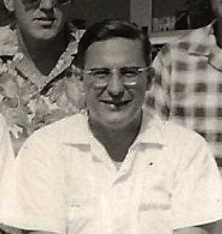
Dr. C.L. Culpepper reported
a miraculous healing.
The veteran Baptist missionary of 44 years, John Abernathy, wrote that the revival came about as a result of “earnest prayer by groups and individuals, faith in God, Bible study, teaching, and much preaching on sin and kindred subjects.”
The president of the North China Baptist Theological Seminary, Dr. C.L. Culpepper, wrote that the revival began in 1927 in Chefoo (now Yantai) with a series of meetings conducted by Marie Monsen, a missionary with the Norwegian Lutheran Mission.
Culpepper’s testimony of a miraculous healing that took place in his wife, Ola, also brought tremendous impetus to the revival. She was losing her eyesight and was under continual pain from a degenerative eye disease. Marie Monsen had just given a testimony of healings that had taken place in other areas, and Dr. Culpepper asked her to anoint his wife and pray for her. After Monsen prayed, Ola Culpepper laid down her glasses and her eyes never bothered her again.
Marie Monsen
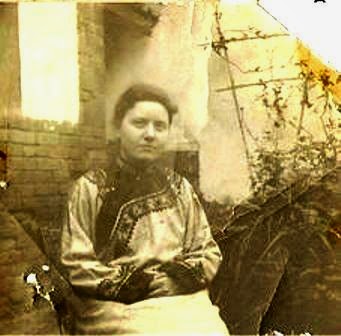
Marie Monsen of the
Norwegian Lutheran Mission
Gustav Carlberg of the Lutheran Augustana Synod Mission indicated that “one of the outstanding instruments God used for the reviving of the churches in northern China was Miss Marie Monsen.”
Carlberg also indicates that Monsen “was in possession of a power from God that was well-nigh irresistible.” This “irresistible power” led her to bring revival to churches in the far northern area of Manchuria and to other southern provinces as well.
A common practice of Monsen was to ask people if they were born-again. She would ask this of missionaries, pastors, and evangelists too. The conviction power of her words was not only released during her sermons, but she would also stand at the door of the church after preaching and ask people as they were leaving if they were born-again. Some testified that conviction power contained in her words “felt like the thrust of a sword,” or “they were like lightening-bolts.”
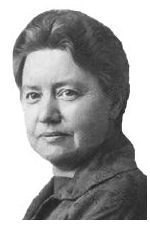
Marie Monsen
Concerning Monsen’s ministry in the city of Dairen (now Dalian), Carlberg relates: “She has been used of God to bring great blessing since….In Dairen souls are being regularly added. In Chinchow (now Jinzhou) people are continually being saved, and the effects are being felt out in the country districts. In Takushan there is rejoicing that several of the evangelists have been aroused to new life; many have been saved and the fire is spreading.”
Captive by Pirates for 23 Days
In April 1929, on a trip by ship from Tientsin (now Tianjin) to conduct meetings in Hwanghsien, pirates boarded the ship Monsen was on and commandeered it for 23 days. A partial telling of her experience can be read with this link. Monsen’s encouraging example of bravery and courage through the experience brought strength to others.
The reviving that was brought to many began to spread like a contagion. Individuals revived in one place would then go to another, carrying the contagion there.

John and Jewell
Abernathy, Baptist
missionaries
in China
Conviction of Sin
This revival was no different than others, in that conviction of sin was the initiating step God took to set His Church right. Baptist missionary John Abernathy indicated that before the evangelistic aspect of the revival came, the Church came under deep conviction of sin.
Abernathy wrote that missionaries were also among those who came under deep conviction of sin, and until those sins were confessed and restitution made, there would be no relief from that conviction power of the Holy Spirit. It was the same for those to whom reconciliation was in order.
It was not uncommon for people to begin crying out in agony due to their sins, right in the middle of a sermon.
Results of the Revival
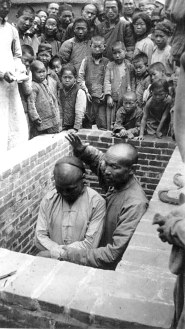
Baptisms increased
►Spiritually dead churches were made alive again.
►Prayer became more earnest.
►Church attendance dramatically increased in just a few months, and those attending were diligent in their labors for the Lord.
►National leaders were developed and the Chinese church took ownership and moved forward without the finances or the oversight of the mission agencies.
►Sick were healed and devils cast out.
►Men, women, boys, and girls were preaching with results.
►Witnessing became spontaneous.
►Uneducated Chinese became more effective in evangelism than missionaries.
►Evangelistic teams were sent to different provinces, with many being saved.
►Unconverted church members and even preachers and missionaries were saved and filled with the Holy Spirit.
►All the faculty of the North China Baptist Theological Seminary and Bible School had been filled with the Holy Spirit.
►Enrollment in some Bible colleges grew thirty-fivefold.
►Revival was experienced in all three Baptist hospitals, with many nurses being saved and filled with the Holy Spirit. Patients were also saved daily.
►Renewed power was given for living, serving, and dying.
►Increased persecution was experienced.
►Family relationships were healed and unsaved people, seeing the change in the Christian’s lives, were drawn to Christ.
►The study of the Bible became more intensified.
►Conversions and baptisms increased ten times the first year and continued for a number of years.
►Lives were transformed.
►Opium addictions were broken.
►Family idols were destroyed.
►Stolen goods were returned to the rightful owners.
►Joy in the Lord brought more singing, especially choruses. Many hymns were composed.
►Chinese leaders became more conscious of their responsibility and manifested a new gratitude to the missionaries for their work in laying foundations.
►Self-support of the Chinese Church, which had been a distant goal, was now seen as being attainable.
►A fresh victory over sin emerged where before there was only powerlessness.
Contribution to the Revival’s Forward Momentum
►God fulfilling His promises by manifesting His power, testifying to the truth of the Word of God
►United and continuous prayer
►Spreading of tracts, portions of scriptures, and other books
►The faithful preaching and teaching of a clear Gospel message
►Chinese leadership that took ownership for their own nation’s salvation
►Hospital work and famine relief
►National calamities, warfare, and intense suffering prepared the hearts of people for the Gospel message.
►Man, both in the Church and without, came to the end of their resources, and realized that without divine intervention, they were hopeless.
Manifestations
Strangely, this revival took on a very Pentecostal nature, and was embraced by the traditionally non-Pentecostal denominations. John Abernathy, a Southern Baptist missionary, reported that from September 1930 to June 1932, 24 of their missionaries experienced a baptism, or filling of the Holy Spirit, and this was subsequent to their salvation. Abernathy and Culpepper indicated that others also had similar experiences as the revival progressed.
Accompanying the baptism of the Holy Spirit there was occasionally:
►Speaking in unknown languages.
►Singing in unknown languages.
►Laughing (this one being the most common experienced).
►Falling on the ground, jumping, rolling.
►Some would lay on the floor for hours, under the power of the Holy Spirit.
In addition, there would at times be dreams, visions, trances, shaking, and praying in unison without loud voices.
Missionaries reported that following this baptism, they were more surrendered to Christ, in response they received greater boldness and more power in the Lord’s work.
Abernathy said that these manifestations are not out of place. He said; “when the Holy Spirit is in it, one ceases to feel that it is out of place.” He also indicated that Satan attempted to bring reproach by duplicating these manifestations, for the purpose of discrediting the entire revival. That is how Satan works, by leading people into excesses.
While the Baptists of the Southern Baptist Convention were embracing the manifestations, and reaping an abundant harvest, the English Baptists opposed the “excesses,” and they saw little fruit as a result.
The Lutheran Gustav Carlberg opposed the manifestations, and referred to them as “undesirable manifestations,” “extravagances,” “unhealthy outgrowths,” “blemishes,” and “aberrations in the extremes.” Even so, he acknowledged that there was some good that came from the manifestations.
Manifestations Investigated
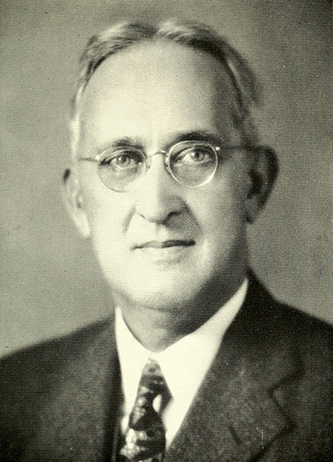
Charles Maddry
The stories of the manifestations that were occurring among the Baptist missionaries were reported to their denominations Foreign Missions Board (now the International Missions Board). The report was that Baptist missionaries “had indulged in Pentecostal excesses.”
In 1935, Executive Secretary of the Southern Baptist Foreign Mission Board, Charles E. Maddry, was sent to China to investigate, and he returned with glowing reports. He affirmed the validity of the work by the missionaries and directly defended them when he said,
In the great revival that has swept through North and Interior China, there have been some excesses and hysteria, but it is rapidly passing today. Our missionaries have their feet on the solid rock of Christ Jesus and they are building gloriously on the foundation laid so deep and strong by those heroes and martyrs who preceded them.
Sources
A Present Help by Marie Monsen
Forged in Fire: by Sarah Alexander
Marie Monsen: Lutheran Hero by Eric Jonas Swensson
Monsen, Marie (1878-1962) Norwegian Missionary in China by Boston University School of Theology
Marie Monsen by Wikipedia
Revival Is Like Judgement Day by J. Edwin Orr
Speaking in Tongues and the Shandong Revival by Wesley Handy
The Awakening: Revival in China: 1927-1937 by Marie Monsen
The Shantung Revival by C. L. Culpepper
The Shantung Revival Effects on the Missionaries sermon index.net
The Shantung Revival in China by John & Jewell Abernathy in Reynolds Archives
The Shantung Revival by Mary Crawford
China in Revival by Gustav Carlberg
The Story of Our China Mission by Gustav Carlberg
Return to List of Revival Stories
Chet & Phyllis Swearingen:
Office: (260) 920-8248
romans1015@outlook.com
Beautiful Feet
P.O. Box 915
Auburn, IN 46706

